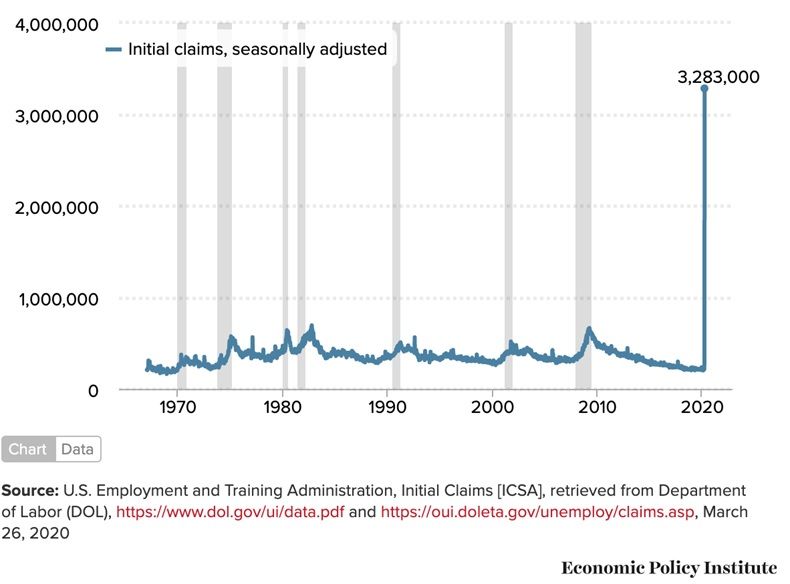The True "Black Swan" Event
COVID-19 doesn't qualify, but our vulnerability is another matter entirely

I’d heard a few friends, talking heads, and peers speak about the emergence of COVID-19 as a “black swan” event, referring to the work of Nicholas Taleb and his book, “The Black Swan: The Impact of the Highly Improbable.”
But something didn’t seem right about describing COVID-19 this way. We’d seen other coronaviruses, and teetered on the edge of other outbreaks, from SARS to H1N1 to MERS to Ebola. I’d had enough tangential experience with medical research, including infectious disease and tropical medicine research, to know there are a lot of layers involved in detection, description, and containment of novel diseases. We wiped out smallpox. We almost eradicated measles. We know what we’re doing, and have seen even worse diseases contained and conquered.

Then I came across an essay by Alex Danco which nailed the unease I was feeling of writing off COVID-19 as some strange extreme in and of itself. As Danco writes:
I don’t think we can really call COVID-19 itself a Black Swan event. Plenty of people saw it coming, in some form or another, and said so. If you asked people last year, “what will trigger the next global event?”, some non-trivial number of people would probably say “a pandemic.” We were warned.
The resulting small businesses armageddon and unemployment tragedy might be, though. When we thought about pandemics, we typically forecasted either the immediate medical consequences, or went all the way to I am Legend scenarios where everyone is dead. But as far as I can tell, no one really foresaw what happens when no one can leave their house for 3 months, so every small business closes all at once?. . . This is real Black Swan stuff.
To my mind, COVID-19 represents an entirely expected event — the emergence of a flu-like illness, a novel coronavirus. We’ve seen this before. We’ve dealt with it before. Danco’s argument is that the “all at once” extreme of mass isolation, unemployment, and economic dislocation are combining for the true “black swan” event. Just look at the unemployment graph below:

Danco makes the further point that there’s a difference between things happening in parallel or all at once. Businesses operating in parallel over 30 years would generate a statistical curve probably pretty close to the bell curve of success — failures on the left, moderate successes in the fatter middle, and extreme successes at the far right. The failures had to go without revenue and customers for a period of time. But now most restaurants, bars, stores, barbers, nail salons, and spas are having to experience the failure part of the curve all at once, which only pulls others down in the same direction. We’ve never seen this happen before in a matter of weeks. That’s why even routine aspects of running a business — making another annual budget — are full of pitfalls and new variables.
We’ve been drifting toward a “black swan” event imperceptibly for years, by drifting away from what Taleb would call “Mediocristan” and into “Extremistan.” This goes to the heart of seemingly disconnected things — the disappearance of the mid-list authors on bestseller lists; the “go big or go home” in theater, music, and television; the consolidation of companies; and, the extremes in wealth and income concentration.
In Mediocristan, things are pretty dull, material wealth and capabilities don’t have many extreme aspects, and events are pretty predictable. Systems, governance, and infrastructure all aim to keep it this way — to prevent extremes and the unpredictability that comes with them.
In Extremistan, exceptional events happen all the time. Dua Lipa happens in music. Amazon happens in business. Donald Trump happens in politics.
Economics and politics have both been drawing us into Extremistan for decades — with income inequality and political polarization as the major symptoms. Now, an infectious disease entity — which resembles many managed so well in Mediocristan — has been drawn into Extremistan by the mismanagement and ineptitude that are the spawn of extreme economics and extreme politics.
And now we’re faced with the “black swan” of mass unemployment, economic instability on a scale we haven’t seen before, social isolation of hundreds of millions of people all at once, and extreme shocks to society at many levels.
I wanted to share this because Danco helped me have an “Aha!” moment that had been eluding me. The “black swan” event isn’t COVID-19. The “black swan” event is the way it’s been allowed to promulgate despite our knowing what it was, how it needed to be dealt with, and so forth. The “black swan” has shut down our economy, our lives, and our society. Once we get on the other side of this “black swan” event, we’ll still have COVID-19 in our midst — and probably a new vaccine, adding to the evidence that we’ve seen things like this before.
The challenge will be to pull disease detection, mitigation, and prevention back from Extremistan and back into Mediocristan, where it’s mundane and predictable again.